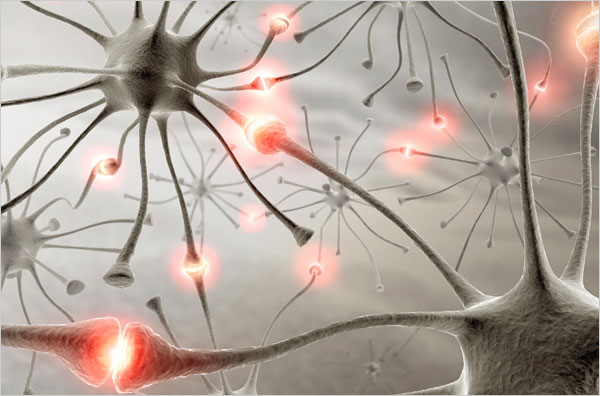La esquizofrenia es una enfermedad mental crónica grave caracterizada por un conjunto de síntomas que afectan al funcionamiento psicológico de la persona y a su contacto con la realidad. Afecta al 1% de la población y aunque tiene una base biológica, las causas no son totalmente conocidas.
Ahora un equipo de científicos del Hospital de Investigación St. Jude Children ha relacionado por primera vez, un circuito específico del cerebro con las alucinaciones auditivas, delirios y otros síntomas psicóticos de la esquizofrenia.
El equipo dirigido por Stanislav Zakharenko, ha vinculado estos síntomas a la delación (pérdida) de un gen, el DGCR8. Esto lleva a cambios en la química del cerebro que reducen el flujo de información entre las dos estructuras cerebrales implicadas en el procesamiento de la información auditiva. La falta de conexión entre estas estructuras, genera un estrés cerebral que desencadena en las «voces» de la esquizofrenia.
El ADN humano está organizado en 23 pares de cromosomas que se encuentran en casi todas las células. La pérdida del gen DGCR8 está vinculada a un síndrome genético llamado «síndrome de delación 22q11», que consiste en la pérdida de una copia de 25 genes pertenecientes al cromosoma 22, entre ellos el gen DGCR8.
El síndrome de delación 22q11 es uno de los mayores factores de riesgo relacionados con la esquizofrenia, ya que alrededor del 30% de las personas que padecen este síndrome padecen también esquizofrenia.
Trabajos anteriores del laboratorio de Zakharenko vincularon, en ratones con el síndrome de delación, la peŕdida del gen DGCR8 a los cambios cerebrales asociados a la pérdida de una parte importante del aprendizaje y la memoria. El gen DGCR8 codifica para pequeñas moléculas llamadas microARN, que regulan la expresión de proteínas. La pérdida de este gen y la consecuente alteración en la expresión de proteínas afecta a las conexiones sinápticas d zonas del cerebro implicadas en el aprendizaje y la memoria Ahora, además, los investigadores han encontrado, evidencias de que la pérdida de este gen se da en pacientes con esquizofrenia y conlleva cambios que afectan a otra estructura cerebral: el tálamo auditivo.
El circuito interrumpido identificado en el estudio también resuelve el misterio de cómo los fármacos antipsicóticos actuales alivian las alucinaciones auditivas de la esquizofrenia, y ofrece un nuevo enfoque a los esfuerzos por desarrollar medicamentos con menos efectos secundarios que frenen las «voces».

Los fármacos antipsicóticos impiden la unión del neurotransmisor «dopamina» a su proteína receptora «receptor de dopamina D2» (Drd2). Bloqueando así la actividad de la dopamina. Durante décadas los médicos han administrado estos fármacos a sus pacientes esquizofrénicos por ser efectivos atenuando los delirios auditivos de esta enfermedad. Pero hasta ahora, no se sabía con seguridad el mecanismo por el que calman las «voces».
Midiendo la actividad eléctrica en ratones mutantes con el síndrome de la delación 22q11 (sin el gen DGCR8) y ratones normales sin el síndrome, los investigadores hallaron que el flujo neuronal del tálamo auditivo era menor en ratones con el síndrome de delación, en comparación con los ratones normales. La actividad eléctrica en otras regiones del cerebro no presentó diferencias entre ratones con el gen DGCR8 y los ratones con el síndrome de delación.
Además asociaron la disminución del flujo neuronal con un aumento de receptores de dopamina Drd2, ya que, después de examinar los niveles de estos receptores en ratones con y sin delación del gen DGCR8, comprobaron que los niveles de los receptores de dopamina, en el tálamo auditivo, fueron significativamente mayores en ratones con el síndrome de delación y iguales en otras regiones del cerebro.
Submit your review | |











Philosophy is the discipline that studies major and universal questions, such as existence, cognition, values, mind, and language. It encompasses many subjects and issues, from ethics and political figures to metaphysics and logic. Here are principal nuances of philosophy:
1. Definition of Philosophy
Philosophy comes from the Greek words «philos» (love) and «sophia» (wisdom). It is the desire to understand and make sense of the world around us and our place in it.
2. The Main branches of philosophy
– Ontology research of the essence of being and existence.
– Epistemology the study of the nature and limits of cognition.
– Ethics the analysis of ethical principles and concepts of good deed and evil.
– Logic research of the forms and principles of correct thinking.
– Socio-political philosophy the study of questions of power, justice and the state.
3. Famous Philosophers
During the history of philosophy, almost many thinkers have made weighty contributions to this science. Some of the most recognizable include:
– Socrates, considered the founder of Western philosophy.
– Plato, a pupil of Socrates, developed the doctrine of forms.
– Aristotle, the creator of logic and a large number of scientific fields.
– Immanuel Kant, known for his own Scott Fitzgerald critical philosophy and work on moral issues.
4. The Relevance of Philosophy in the Modern World
Philosophy remains urgent in the modern world because it helps people to understand difficult social and moral issues, and also develops critical thinking. It affects the legal system, politicians, and various fields of science.
5. Practical Applications of Philosophy
Philosophical ideas enter everyday life. Ethical reflection helps people do the right thing in complex situations, and philosophical analysis contributes to greatest understanding of issues related to technology, art, and social justice.
Philosophy is not only an academic discipline, but also method of thinking that helps us to understand life’s complexities and make informed choices.
Philosophy is the discipline that studies fundamental and universal questions, such as existence, cognition, values, mind, and language. It encompasses many topics and problems, from ethics and politicians to metaphysics and logic. Here are the main nuances of philosophy:
1. Definition of Philosophy
Philosophy comes from the Greek words «philos» (love) and «sophia» (wisdom). It is zeal to understand and make sense of the world around us and our place in it.
2. The Main branches of philosophy
– Ontology research of the essence of being and existence.
– Epistemology the study of the nature and limits of knowledge.
– Ethics the analysis of moral principles and concepts of good deed and evil.
– Logic research of the forms and principles of correct thinking.
– Political philosophy the study of questions of power, justice and the state.
3. Notable Philosophers
In the course of the history of philosophy, many thinkers have made weighty contributions to this science. Some of the most famous include:
– Socrates, considered the founder of Western philosophy.
– Plato, a pupil of Socrates, developed the doctrine of forms.
– Aristotle, the creator of logic and a large number of scientific fields.
– Immanuel Kant, known for his Philosophy critical philosophy and work on moral issues.
4. The Relevance of Philosophy in the Modern World
Philosophy remains urgent in the modern world as it helps people to understand complex social and moral issues, also develops critical thinking. It influences the legal system, politicians, and different fields of science.
5. Practical Applications of Philosophy
Philosophical ideas enter everyday life. Ethical reflection helps people do the right thing in difficult situations, and philosophical analysis contributes to most excellent understanding of problems related to technology, art, and social justice.
Philosophy is including an academic discipline, as well as a way of thinking that helps us to understand life’s complexities and make informed choices.
Philosophy is the discipline that studies major and universal questions, including existence, knowledge, values, reason, and language. It covers many subjects and problems, from ethics and politicians to metaphysics and logic. Here are principal aspects of philosophy:
1. Definition of Philosophy
Philosophy comes from the Greek words «philos» (love) and «sophia» (wisdom). It is zeal to understand and make sense of the world around us and our place in it.
2. The Main branches of philosophy
– Ontology the study of the essence of being and existence.
– Epistemology the study of the nature and limits of knowledge.
– Ethics the analysis of ethical principles and concepts of good deed and evil.
– Logic the study of the forms and principles of correct thinking.
– Socio-political philosophy the study of questions of power, justice and the state.
3. Famous Philosophers
In the course of the history of philosophy, many thinkers have made significant contributions to this science. Some of the most famous include:
– Socrates, considered the founder of Western philosophy.
– Plato, a student of Socrates, developed the doctrine of forms.
– Aristotle, the creator of logic and a large number of scientific fields.
– Immanuel Kant, known for his own Philosophy critical philosophy and work on moral issues.
4. The Relevance of Philosophy in the Modern World
Philosophy remains urgent in the modern world since it helps people to understand complex social and moral issues, and also develops critical thinking. It affects the legal system, politicians, and various fields of science.
5. Practical Applications of Philosophy
Philosophical ideas penetrate everyday life. Ethical reflection helps people do the right thing in difficult situations, and philosophical analysis contributes to best understanding of problems related to technology, art, and social justice.
Philosophy is not only an academic discipline, but also a way of thinking that helps us to understand life’s complexities and make informed choices.